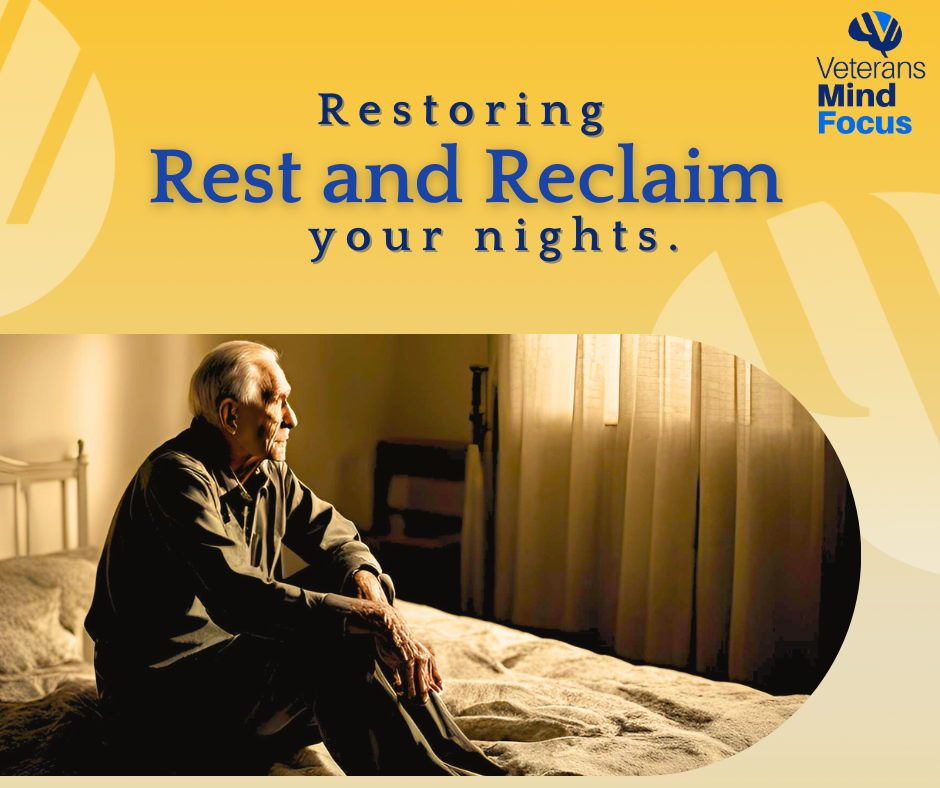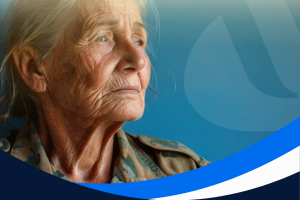
Veteran’s Insomnia Is a Silent Struggle
Insomnia in veterans is a common issue, often tied to the unique stressors and experiences that come with military service.
For many veterans, the battle doesn’t end when they leave the service. Long after the uniform has been put away, the nights can often feel like a battleground in their own right.
If we understand the causes and find effective ways, insomnia in veterans can be effectively managed. It is crucial for improving the quality of life for those who have served.
Why do Veterans Struggle with Sleep?
Insomnia in veterans is not just about having trouble falling asleep or staying asleep, it is often rooted in deeper issues related to their service. Here are some common factors that contribute to insomnia in veterans:
1. Post-Traumatic Stress Disorder (PTSD): Veterans who have experienced traumatic events during their service may develop PTSD, which can result in chronic insomnia. Nightmares can keep veterans awake at night.
2. Anxiety and Depression: The transition from military to civilian life can be challenging. Mental health conditions are closely linked to sleep disturbances, making it difficult for veterans to get the rest they need.
3. Physical Injuries and Chronic Pain: Injuries sustained during service can lead to chronic pain. It plays a significant role in causing insomnia. Pain can make it hard to find a comfortable sleeping position, leading to restless nights and fatigue.
4. Disruption of Sleep Patterns: Military life often involves irregular sleep schedules, particularly during deployments. These disruptions can persist even after service, making it difficult for veterans to establish and maintain healthy sleep patterns.
The Impact of Insomnia in Veterans:
The effects of insomnia extend beyond simply feeling tired. Chronic sleep deprivation can have serious consequences for a veteran’s physical and mental health. It can exacerbate existing conditions such as PTSD, anxiety, and depression, as well as increase the risk of developing other health issues like cardiovascular disease and diabetes.
Insomnia can also affect cognitive function, leading to problems with memory, concentration, and decision-making.
Strategies for Managing Insomnia:
Managing insomnia in veterans can be challenging; however, several strategies can help them achieve the sleep they need.
1. Seek Professional Help: It is essential to seek assistance from a healthcare provider. They can evaluate your symptoms, identify underlying issues, and suggest treatments involving therapy, medication, or a combination of both.
2. Practice Good Sleep Hygiene: Establishing healthy sleep habits is essential for effectively managing insomnia. This includes sticking to a regular sleep schedule, creating a comfortable sleep environment, and avoiding stimulants like caffeine and nicotine before bed.
3. Consider Cognitive Behavioural Therapy for Insomnia (CBT-I): CBT-I is a highly effective treatment for chronic insomnia. It focuses on changing the thoughts and behaviours that lead to sleep problems, and it has been shown to enhance sleep quality in veterans.
4. Relaxation Techniques: Practices like deep breathing, meditation, and progressive muscle relaxation can help reduce stress and anxiety, making it easier to fall asleep.
5. Stay Active: Regular physical activity can enhance sleep quality and alleviate symptoms of insomnia. However, it’s essential to avoid vigorous exercise close to bedtime, as it can lead to negative effects on sleep.
Restoring Rest for Veterans:
Insomnia is a common and often debilitating condition among veterans, but it doesn’t have to be a permanent part of life after service. By understanding the underlying causes and taking steps to address them, veterans can reclaim their nights and improve their overall quality of life. Remember, seeking help is a sign of strength, not weakness. If you are experiencing insomnia, help is available, and achieving better sleep is possible.



